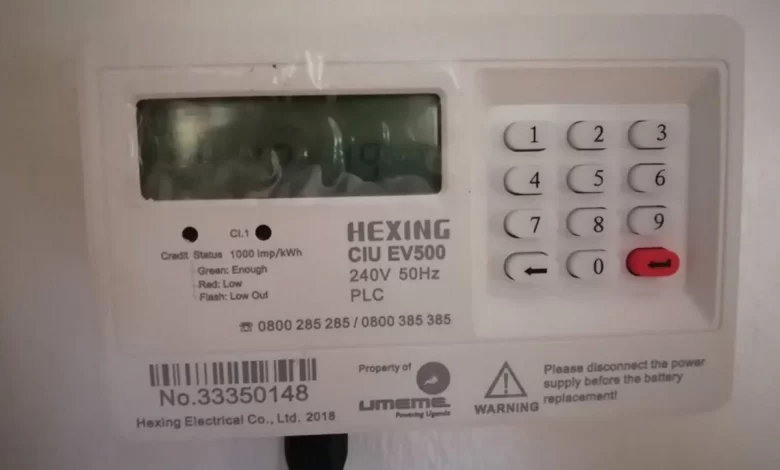Audit Umeme yaka meters for accuracy and compliance with relevant standards
It is noted that Ugandan customers have frequently complained about the yaka meters that are malfunction and overcharging yet Umeme is slow in rectifying the problems with the meters. Other complaints have included replacement of malfunctioning meters with those in other customers’ names, shabby treatment of customers with those who fail to innocently report malfunctioning metres that give them more units are being treated like thieves yet the problem lies in Umeme and others.

Editor, early this month, the Observer paper reported that Ugandans are decrying thuggish yaka meters where some electricity consumers noted that they are being overcharged for electricity and the units run so fast.
Early August, Farida Nakazibwe posted on her X handle that she uses 200,000shs on power for 2-3 weeks, noting that she has even been forced to give up on using washing machine and the electric side of the cooker. She further noted that she has spent 1.52m since March 19, 2024 to August. More so, in the recent months, numerous consumers reported various issues related to the usage and functioning of Umeme Yaka meters.
In January 2018, Uganda National Bureau of standards (UNBS) reported that out of 6,500 metres it tested between June and December 2017, over 92% of electricity metres were faulty whereas only 500 meters passed the compliance test, representing a paltry 7.6% which is un fortunate for Ugandans.
It is noted that Ugandan customers have frequently complained about the yaka meters that are malfunction and overcharging yet Umeme is slow in rectifying the problems with the meters. Other complaints have included replacement of malfunctioning meters with those in other customers’ names, shabby treatment of customers with those who fail to innocently report malfunctioning metres that give them more units are being treated like thieves yet the problem lies in Umeme and others. Such discrepancies have disrupted consumers budgeting and have led to unintended service disconnections.
Notably, the anomalies of irregular debiting patterns where amounts are deducted inappropriately have led to confusion and dissatisfaction among electricity consumers where in some cases they find themselves losing credit without any explanation. More so, reports of meters failing to operate after a short period of installation have emerged and the yaka meters users find it an inconsistency in the durability which has led to unnecessary losses and additional costs to replace faulty meters. The yaka meter challenges have raised concerns about violations of fundamental consumer rights including the right to fair treatment, transparency and access to redress.
Additionally, in August this year, the deputy speaker of parliament Thomas Tayebwa directed the parliamentary Committee on energy to investigate reports of irregular billing by Yaka electric meters. This came after a formal complaint to parliament where by Buzaya county legislator Martin Muzaale noted that Yaka electric meters are over billing people’s energy consumption amidst the high charges for electricity which is not fair for Ugandans in these difficult economic times but it even after this directive, nothing was done.
The Ministry of Energy and ERA said previously that more power dams are constructed to provide cheaper power. Further, president Museveni while commissioning the new Simba cement factory in Tooro district, asked Ugandans not to worry about the electricity costs where he noted that it will go down after the completion of the many dams that are being constructed in our country. Despite of the surplus power from these dams, Ugandans continue to face a lot of challenges concerning electricity’s reliability and affordability among others. These challenges do not only cause inconvenience but also lead to concerns about fair billing and overall customer satisfaction.
Therefore, addressing these issues is essential for ensuring transparency, maintaining consumer trust and enhancing the overall efficiency of prepaid electricity services. More so, the continuous monitoring, maintenance and potential upgrades to the metering technology may be necessary to mitigate such patterns and improve service reliability. These issues have become a barrier for customers seeking reliable access to electricity.
ERA in collaboration with UNBS and other relevant government entities must audit UMEME’s pre-payment system to stop consumer exploitation. These several complaints including malfunctioning Yaka metres, suspicious electricity metres that run too fast, denial of consumers the right to monitor their electricity consumption through positioning of the Yaka metres on electricity poles that are inaccessible to consumers among others must be tackled in order to improve on people’s standards of living.
The writer, Olive Atuhaire is a research associate







